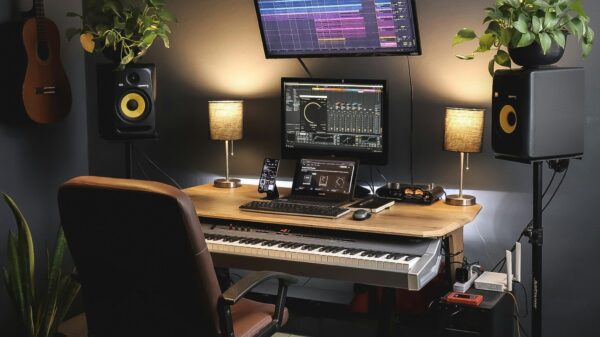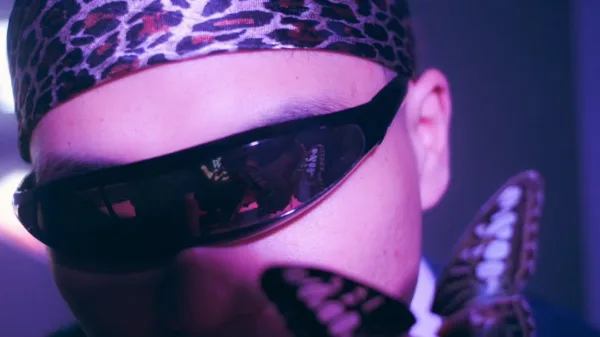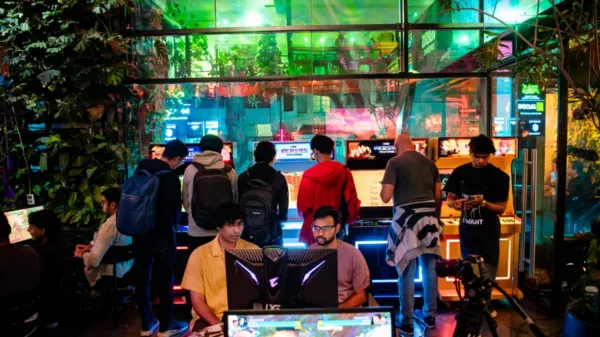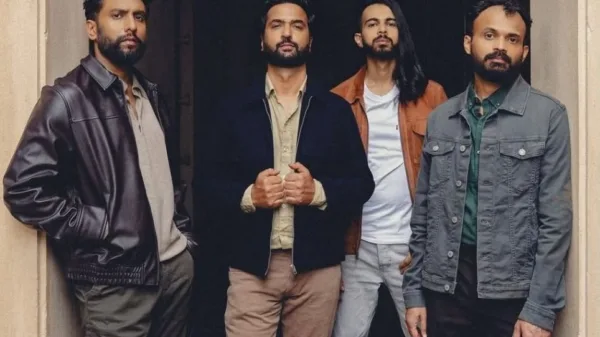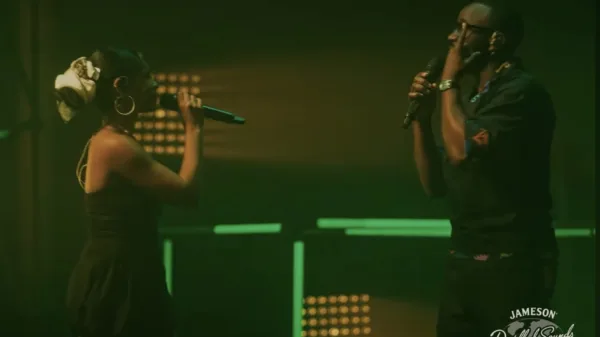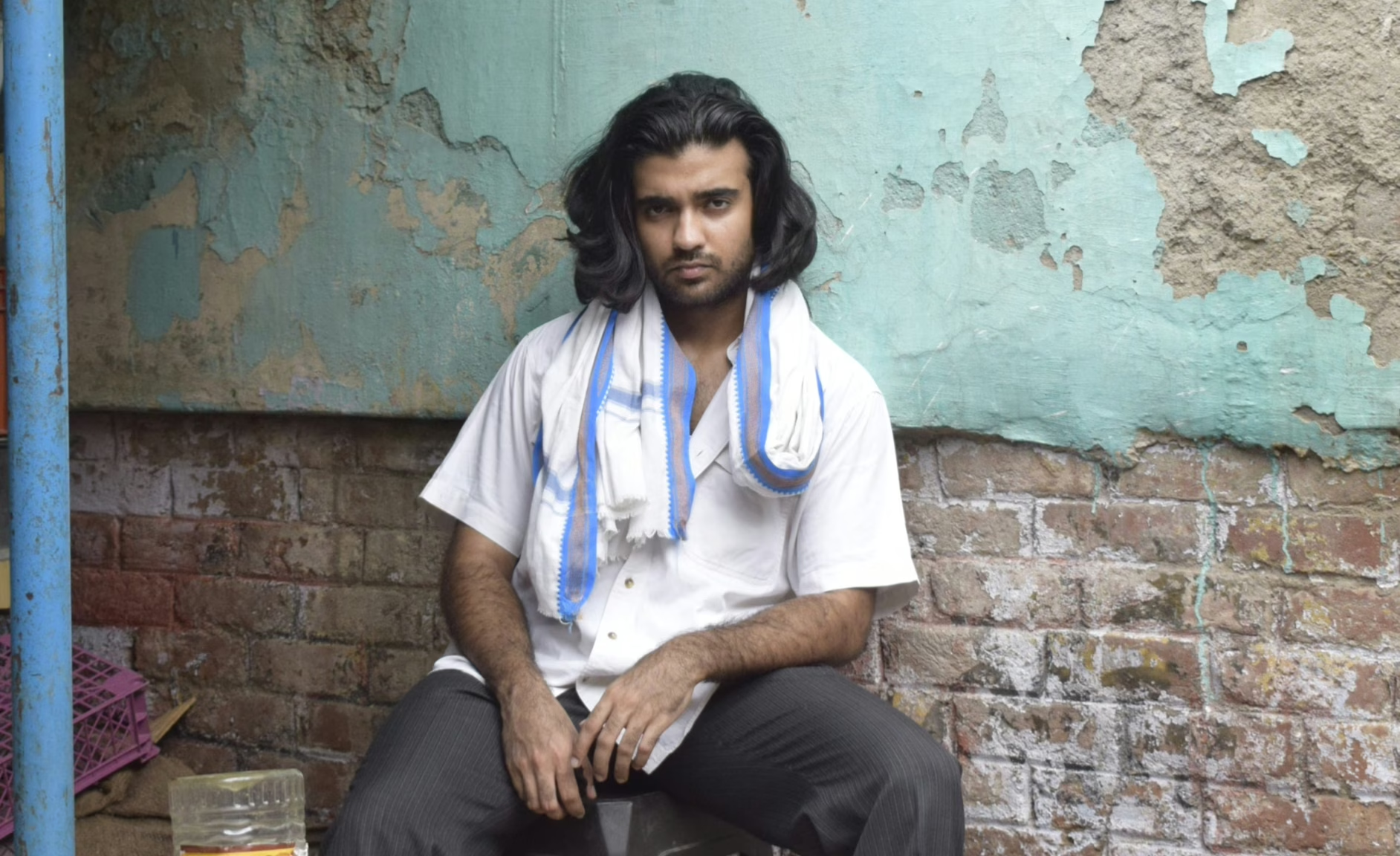Baijoo Bawra is back, with his ever expanding repertoire of stories for his new EP, “Billu Barber”. On his previous album, Baijnaath, the artist had spun B-movie-esque narratives with a plethora of characters that formed a complex, intricate story line. This time he has unfailingly delivered, with a new character – Billu Barber.
Billu, in the artist’s universe, chops hair and commits petty theft simultaneously – before his life enmeshes with a fight club and goes for an absolute toss. The character, and the storyline, which the artist divides into each track – has the same gritty, gregarious and grimy nature one is familiar with, if they have encountered his work previously. In a brief voice note shared over Instagram, the artist shares that Billu’s story is drawn from a “scam” that had happened to him – and he has drawn from multiple experiences of his own. This is not new territory for him, most of Baijoo’s art practice is based in functioning in this neo-noir Noida-verse, where the characters are familiar and distant — something you would see in a Ram Gopal Verma / Anurag Kashyap / old Hindi sleaze comic synthesis prototype.
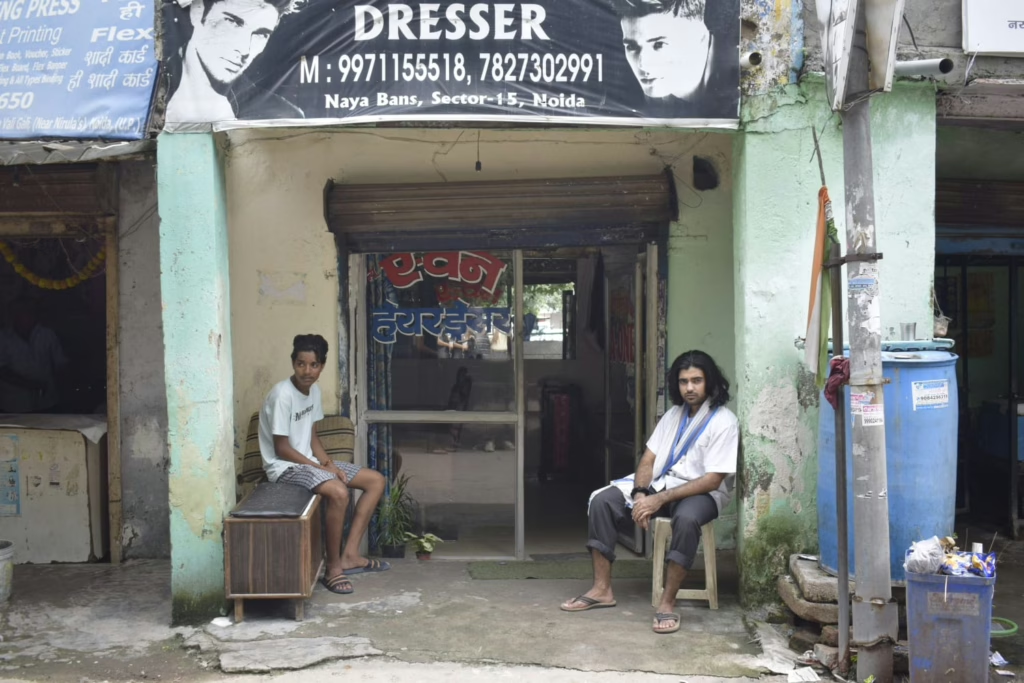
The EP is 4 tracks long, and is marked by the following titles : Billu Vs. Aslam, Billu Barber, Sonu Poha Center, and the incredible Phati Baniyaan. A year ago, in an interview with us, Baijoo had mentioned leaning more heavily on jazz and guitars, and there is a clean electric guitar undercurrent throughout. A lot of these border on sounding jazzy, which adds to the kind of suspense-building that he does all over the track. One of my favorite tracks on this is Sonu Poha Center, which sprouts from this light instrumental, reverbed slightly for atmosphere — and details the diametrics of fights in the fight club further — which hits a pitstop right in the middle, opening up from percussion-supported rap, to an ambient soundscape where you can hear the light crooning, leading up to a second half that stretches into an outro — where a more mellowed Baijoo whisper-recites and sings about Sonu’s plight, as a near-sensuous “Sonu Poha Center ladkon ki bhook” hits you. The hi-hats on the percussion add to the backbone of this part, and it is impressive — because you realize that Baijoo is not non-committal to the multi-narratives he is building. He is loyal to them, and he is building complementary sound.
Phati Baniyaan is light, neo toned down R&B-esque in its instrumental. Baijoo sings on this one, lightly, almost in tendril-like fashion when it comes to all the notes, before breaking into a more gentle rap verse. Billu Barber, as an EP, lets go of the maximalism of Baijnaath, instead choosing to go with a more toned down, introspective storytelling process that has more empathy and a granting of dimensionality to its characters – the development is welcome. It only signals more possibilities of vision.














